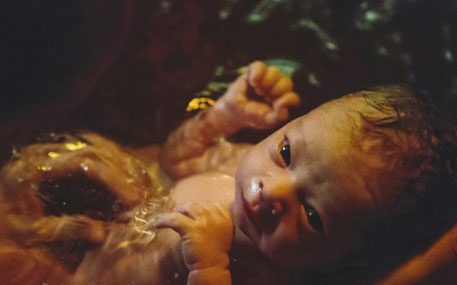Birth in water 'poses no risk,' says research
 Jesus Christ in an answer to Nicodemus's question about how to enter the kingdom of heaven once said, "Very truly I tell you, no one can enter the kingdom of God unless they are born of water and the Spirit."
Jesus Christ in an answer to Nicodemus's question about how to enter the kingdom of heaven once said, "Very truly I tell you, no one can enter the kingdom of God unless they are born of water and the Spirit."
While 'born of the Spirit' refers to salvation, the phrase 'born of water' refers to physical birth. Unborn babies float in a sack of amniotic fluid for nine months. When the time for birth arrives, that sack of water bursts, and the baby is born in a rush of water, entering the world as a new creature.
The Journal of Midwifery and Women's Health has recently published a research wherein it has mentioned that birth in a pool of water is not particularly dangerous for new-borns. In fact, immersion in water during labour is thought to have various benefits, including less need for pain medication and, theoretically, a smaller chance of vaginal trauma, as the perineum becomes more elastic and relaxed in water.
Birthing pools, which are widely popular in Europe, the United States of America, Australia and New Zealand, are believed to reduce tension in the mother by dipping stress hormones and decreasing blood pressure. It also reduces fetal complications.
Because babies are born with a 'dive reflex,' they have the capability to block their throats when underwater. Hence, the possibility of drowning fades away.
However, lead author Marit Bovbjerg, an epidemiology instructor in the College of Public Health and Human Sciences at OSU, says, "The findings suggest that water birth is a reasonably safe, low-intervention option for women who face a low risk of complications during the birthing process. These are decisions that should be made in concert with a medical professional."

